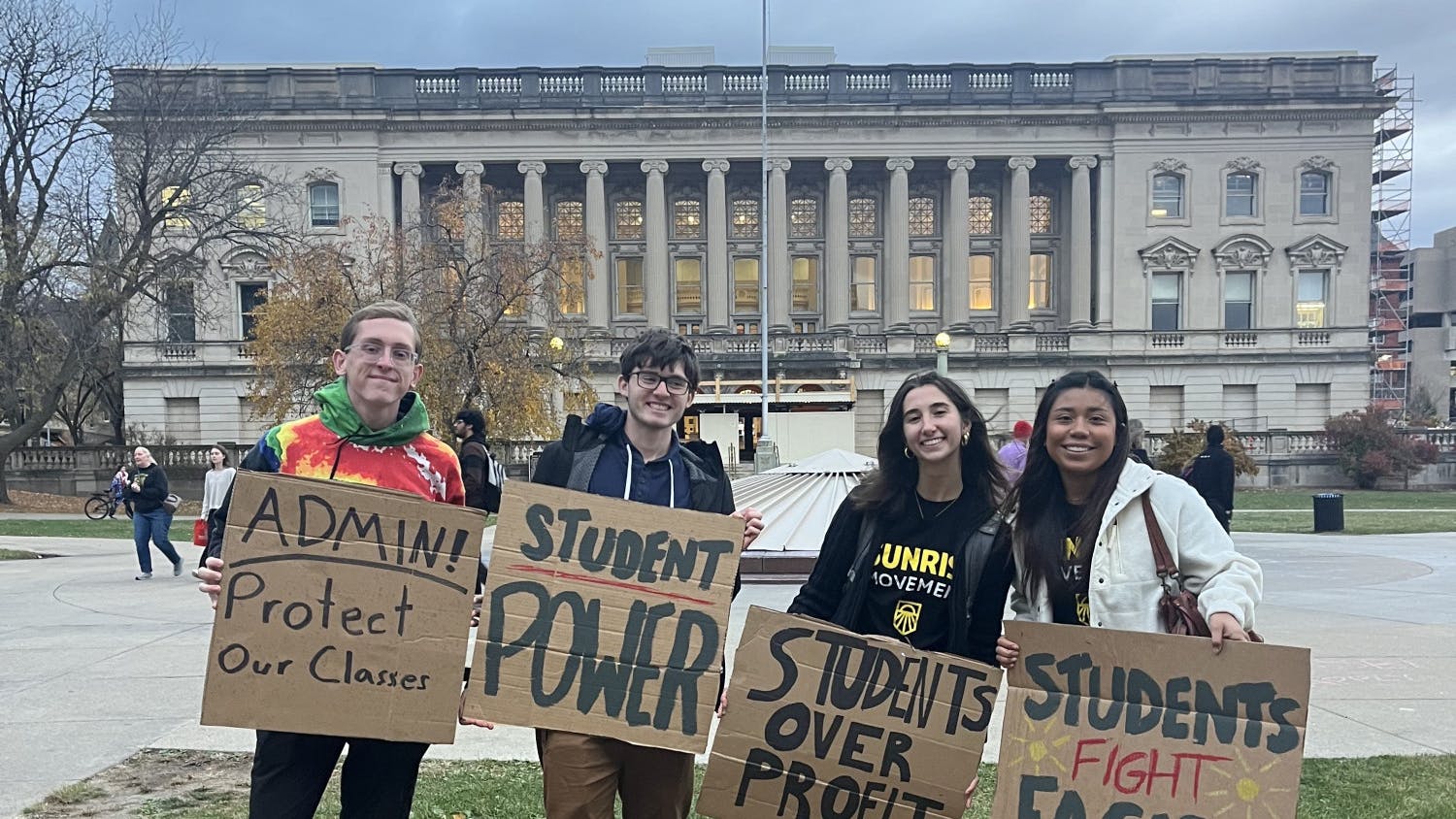On Jan. 31, two men triumphantly retired with a legacy of establishing and maintaining prosperous stability. The images of both men were so influential to their respective areas, that their retirements were announced last summer to lessen the blow of their retirement. Jan. 31 marked the end of the Barry Alvarez era in Wisconsin football, and the end of the Alan Greenspan era in world economics. While it is merely a coincidence that these two men retired on the same day, the similarities in their accomplishments and their approach to obtaining results are strikingly similar: their lasting legacy is intertwined with that of their successors.
Alan Greenspan did for the United States' economy what Barry Alvarez did for UW-Madison. Former Federal Reserve board member Lyle Gramley said, 'He was the first economist in the United States to perceive what was happening.' He transformed the Federal Reserve from being a poorly understood, secretive institution into one that now communicates more effectively with the public and investors. His timely raises in federal interest rates lowered inflation and allowed for unprecedented economic growth and job creation.
Similarily, Alvarez lifted Badger football from debt-ridden shambles into a national model of consistency. Alvarez is hailed as the greatest football coach in Wisconsin history, while Greenspan is often acclaimed as the greatest central banker to have ever lived.
Indeed, both men were visionaries who saw the vast possibilities for success. Both were stoic, determined men that knew what they wanted and worked to obtain it. Once they made a decision, they stuck with it. They knew when to lead, and they knew when to delegate. They both established stability and enjoyed unprecedented success.
Both came around at the right time. Alvarez had Pat Richter, an athletic director who recognized the importance of the football program and was willing to accommodate Alvarez's requests and demands. Alan Greenspan entered an era poised for economic success when he became chairman of the Federal Reserve in 1987; as the Cold War was near its end, new technology was allowing for large profits and the Internet boom was close to beginning.
A changing of the guard is nothing to fear, as both established precedents and laid the ground work for their successors to exceed their own accomplishments. Alan Greenspan made the American economy the envy of the world by presiding over one of the greatest economic booms ever. Ben Bernanke, his successor, aligns closely with Greenspan in his way of thinking. He taught at Princeton and headed the economics department for 17 years and most recently served as the top economic advisor to President Bush.
Bielema inherits a Wisconsin football program that has a prominent, national name and has high recruiting capabilities. By studying under Barry Alvarez, Bielema will possess the winning fundamentals that Alvarez deployed, and at the same time, can implement his own ideas and coaching techniques. Both successors have the credentials to succeed and their presence will allow for the innovation of new ideas that come with a change in leadership.
Ironically, the legacy of both men rides on the success of their successors, so it is important for Bret Bielema and Ben Bernanke to silence their critics early.
The former needs to win games early in the 2006 season and the latter needs to raise the Federal Interest Rate March 28, to show that he is tough on inflation like his predecessor.
If they do this, the legacy of Barry Alvarez and Alan Greenspan will be one step closer to being complete. Not only that, but they could build off of this foundation and take it to the next level: Wisconsin football to the national title, and the American economy to even more prosperous and stable times.





